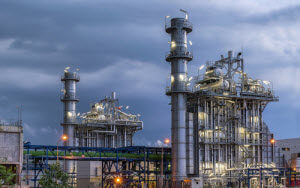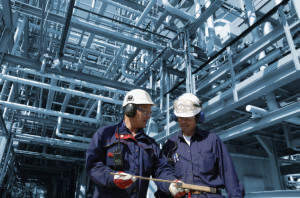Challenges That the US Petrochemical Industry is Facing in 2016
The US petrochemical industry is becoming more and more indispensable for human progress, according to Stephen Pryor, former ExxonMobil Chemical president. However, regardless of its revolutionary successes, the industry is slated to face a number of challenges in 2016 and beyond.
Here are some of the most important hurdles the industry can expect.
Opposition to Free Trade
 According to Platts, the US petrochemical industry has seen great investment as well as new projects thanks to cheaper, shale-based feed stocks. Most of these projects have created plastics and end products that benefit a growing middle class in a developing world.
According to Platts, the US petrochemical industry has seen great investment as well as new projects thanks to cheaper, shale-based feed stocks. Most of these projects have created plastics and end products that benefit a growing middle class in a developing world.
However, rising opposition of free trade could make it more difficult for the industry to provide other regions with the products as well as the chemical and feed stocks needed to make them.
During his Petrochemical Heritage Award acceptance speech during the International Petrochemical Conference in March, Pryor noted that the reason for the increased restriction of free trade is that it doesn’t cater to the industry’s current interests. “We don’t like free trade if it doesn’t suit our interest,” he said. “[But] we have to stand up for free trade and do it even when you think, ‘Right now, my interest won’t be better served.’”
He also goes on to say that while free trade wouldn’t provide immediate results, it could provide long-term benefits that would outweigh short-term drawbacks.
Shortage of Skilled Technical Workers
 Pryor also mentions that the shortage of skilled technical workers would be a definite hurdle the industry must overcome in the future.
Pryor also mentions that the shortage of skilled technical workers would be a definite hurdle the industry must overcome in the future.
In his acceptance speech, he mentioned that new plants and more jobs won’t be enough to solve the issue. The industry also needs to make sure that they have the right employees working within them. “We’re building all these plants and we can’t find technical skilled workers for them,” Pryor said. “So my view is, don’t sit there and wait for the government to fix it; let’s do something about it ourselves.”
Using ExxonMobil as an example, Pryor described the company’s initiatives in building a bigger workforce. He said they teamed up with universities and technical schools to provide students with the proper training needed to work in the industry.
Declining Crude Oil Prices
The most prominent challenge that the US petrochemical industry is slated to face is the declining prices of crude oil. “The way crude oil prices will trend in the next 12 to 24 months will have a significant impact on regional competitiveness, cash margins and, perhaps most importantly, future decisions being made about putting new assets in the ground,” IHS Vice President Mark Eramo said in a BIC Magazine article.
However, based on industry trends, the US petrochemical industry won’t be struggling with this too long. The BIC Magazine article states that the middle class in the United States and across the country is growing. With that comes the higher demand for more plastic consumer goods, which can mean more plants and more overall business.
It’s certain the US petrochemical industry will face challenges for 2016. But as an indispensable market for human progress, the challenges can pose new opportunities for modern living.
CPV Manufacturing proudly serves the petrochemical industry with valves that are used during petrochemical production. We offer a wide range of custom valves and corrosion-resistant stainless products. Contact CPV Manufacturing to learn about high-quality valves and fittings.

